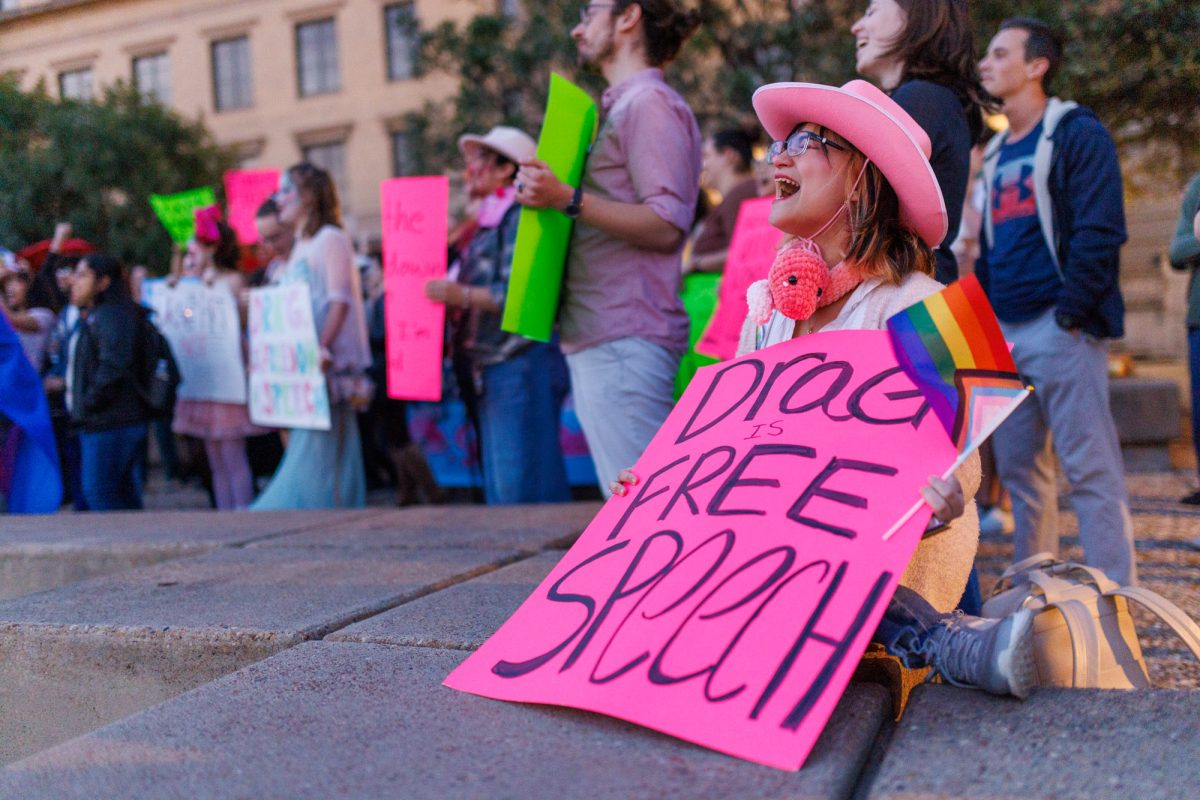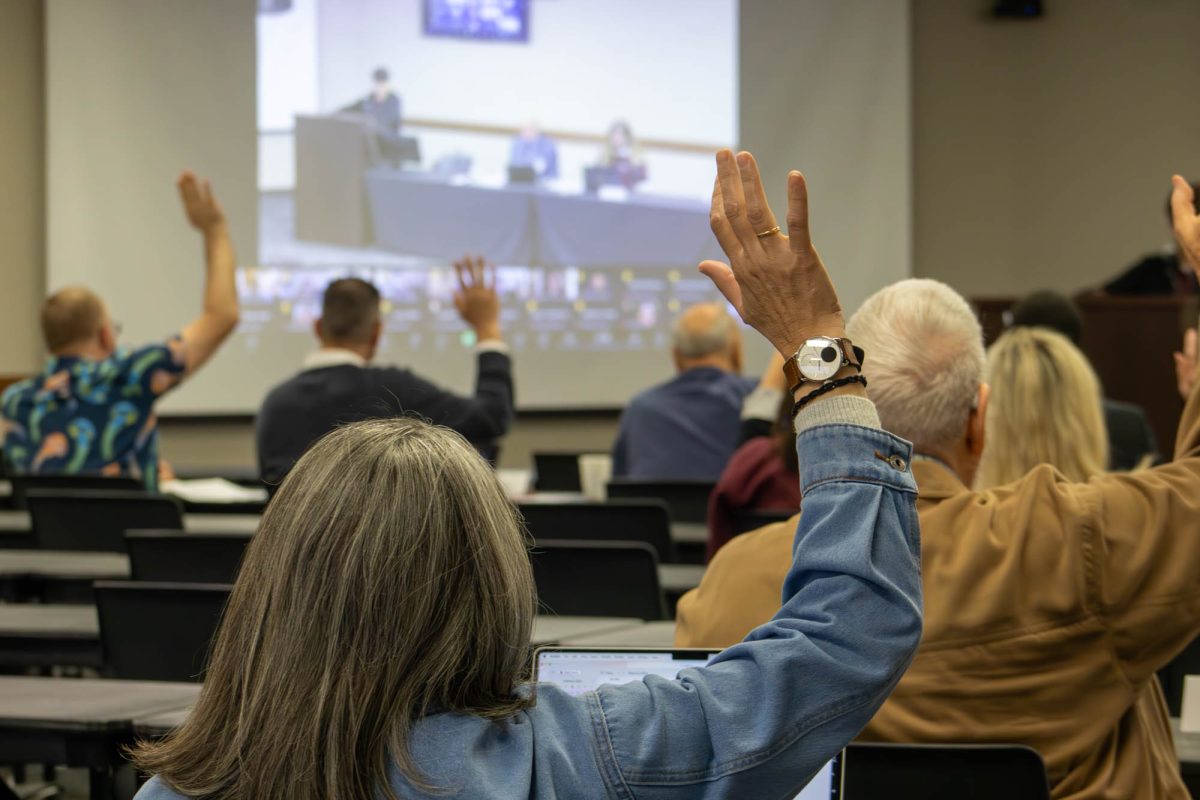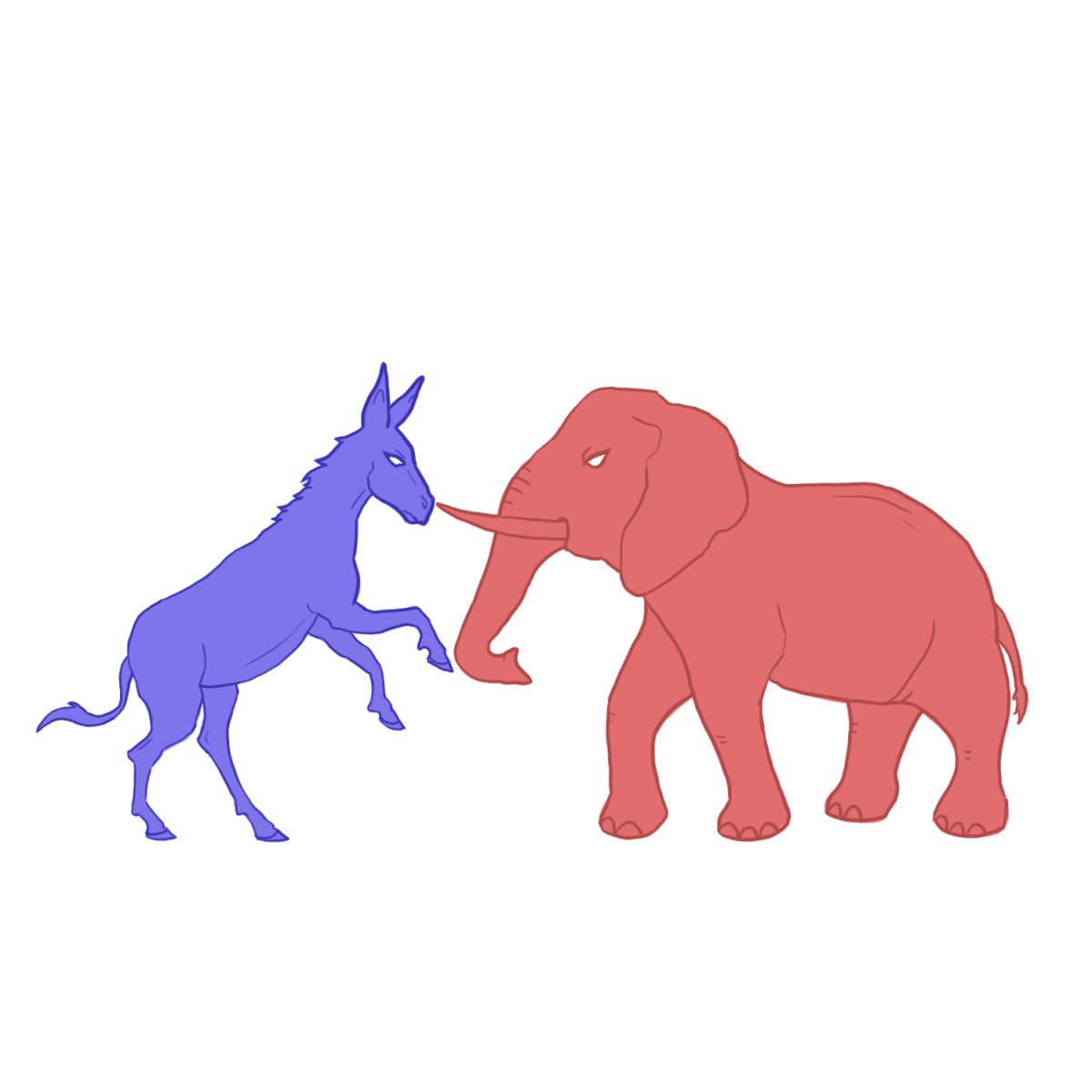The first motion hearing in the federal case Texas A&M Queer Empowerment Council v. Williams Mahomes et al. took place in Houston Tuesday morning. The case, which was ignited last month after a Board of Regents resolution banned drag shows across the A&M System, will have an opinion released before March 26 by Judge Lee Rosenthal.
Draggieland, the banned show in question, is an annual competition between local drag queens that features singing, dancing and talent shows.
Beginning at 9 a.m. in the Southern District of Texas, the counsel for the Queer Empowerment Council, or QEC, spoke first.
J.T. Morris and Adam Steinbaugh from the Foundation for Individual Rights and Expression, or FIRE, began representing QEC on March 5 and have represented other student groups who have been banned from hosting drag shows on campus in the past.
“It’s called Draggieland,” Steinbaugh told the court. “These are students who are conveying to a very conservative campus community that there are LGBTQ members of this community, and there’s a space for them in this community.”
Judge Rosenthal referenced a copy of the College Station campus’ student speech code, which has a beginning amendment that states, “The university will protect the rights of freedom of speech, expression, petition, and peaceful assembly as set forth in the U.S. Constitution and Texas state law. Texas A&M University maintains its right to regulate reasonable time, place and manner restrictions concerning acts of expression and dissent.”
“I think there’s a lot of speech out there that people just don’t like,” Steinbaugh said. “Human instinct is to try and suppress the speech that we find abhorrent …. A lot of people have their own individual lines that they think that speech should not cross, but it’s not the government that gets to draw those lines.”
Zachary Berg from the Texas Attorney General’s Office, who serves as counsel for the Board of Regents and President Mark A. Welsh III, said they believe A&M’s rules on expressive activity on campus don’t allow for a drag show in Rudder Theater. Marc Csoros joined Berg in court for counsel, and Ryan Kercher is also listed as counsel.
“The restriction on the drag shows is purely on conduct,” Berg said. “The Board laid out a five-factor test in the resolution that has only to do with conduct. You don’t need to know anything about viewpoint, know anything about how they feel about gender expression even. You can judge it purely based on conduct.”
The five-point test is stated in the resolution and states that banned drag shows are those “that involve biological males dressing in women’s clothing, wearing exaggerated female make up and/or exaggerated prosthetics meant to parody the female body type, and that are: open to the public; involve sexualized, vulgar or lewd conduct; and involve conduct that demeans women.”
Throughout the hearing, Rosenthal referenced multiple cases that decided drag shows were considered free speech, including The Woodlands Pride, Inc. v. Paxton, a 2022 court case that declared Texas’s “Drag Ban” bill unconstitutional.
“The question is whether a reasonable person would interpret it as some kind of message,” Rosenthal said. “That’s out of the Supreme Court. And in the Woodlands Pride case, my esteemed and very experienced colleagues found that drag performances were expressive.”
The plaintiffs seek a temporary restraining order and preliminary injunction that would allow Draggieland to proceed on campus as scheduled. No immediate opinions were given during the hearing, but Rosenthal said her decision would be released before March 26, the day before Draggieland was originally scheduled.
Computer engineering senior Alex Gonce serves as QEC’s events chair and treasurer and was present at the motion hearing.
“I am hopeful,” Gonce said. “Based on how the judge was asking questions, I am hopeful. But the timeline and everything still very much matters to us.”
News editor J.M. Wise traveled to Houston for this report.






















eyal • Mar 24, 2025 at 9:39 am
what is the name of the case?
Brenda Rezk • Mar 21, 2025 at 7:47 pm
I am a graduate of East Texas State, which later became Texas A&M – Commerce. I am appalled that the Board of Regents has banned drag performances!
Drag is an art form that has been around in one form or another for centuries. Drag shows are traditional Pride events that provide places for the queer community to come together and celebrate. Some people participate in drag before coming out as gay or transgendered; it gives them a support system to explore who they are. Drag, in itself, reminds the community that LGBTQIA people exist and live among them. Drag has been integral to the gay-rights movement in the US. To forbid the freedom of expression of drag, especially during a PRIDE celebration, is like banning stepping shows performed by historically Black sororities.
We are in the midst of an authoritarian coup. DEI – diversity, equity, and inclusion – is being used to erase accomplishments of women, ethnic, racial, and religious minorities, and sex and gender non-conformity and any civil rights they have obtained. Authoritarian regimes start with whomever is most vulnerable, whomever seems most different and has the least power. They started with the constant rhetoric about transgendered women and girls. Then, they moved to calling any female or person of color who disagrees with them or stands in their way a “DEI hire”. They started deporting people chained hand and foot like violent criminals, even though being undocumented in this country is a civil, not criminal, offense. Now, they are deporting people, not to their countries of origin, but to foreign prisons without trials or hearings! That’s a human-rights violation! Marco Rubio said when he made the deal with El Salvador that US citizens might even be sent there!
We are in a constitutional crisis. Drag promotes diversity and non-conformity – two qualities antithetical to authoritarianism. Drag is a form of free speech. I am against banning it from Texas A&M campuses. That would also ban drag from Pride marches. Will you ban drag from theater? Will you ban the showing of movies depicting drag? Will you ban a transgendered woman from campus if someone feels their appearance is somehow too “exaggerated”? What about a woman who is too androgenous and dresses too masculinely? Where does it end?